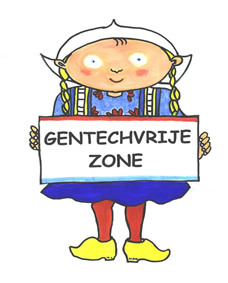Berlin, 24th January 2005 – The Regions of Europe should be given the final say on the growing of genetically modified crops (GMOs) in their area, a major European conference today concluded.
The conference, organised during the International Green Week in Berlin, heard that with over 100 regional and 3500 sub-regional areas now declaring themselves GMO-free, it was time for European law to be changed to protect such areas from the cultivation of GM crops.
200 delegates from GMO free regions and from 30 European countries called on the European institutions to protect conventional and organic seeds from GMO contamination, to establish the regions right to stay GMO-free and to give them a say in the approval process of GMOs, which they find scientifically questionable and not based on the precautionary principle.
Bron: GMO Free Europe, press release, 24-01-2005, European conference calls for regional governance


